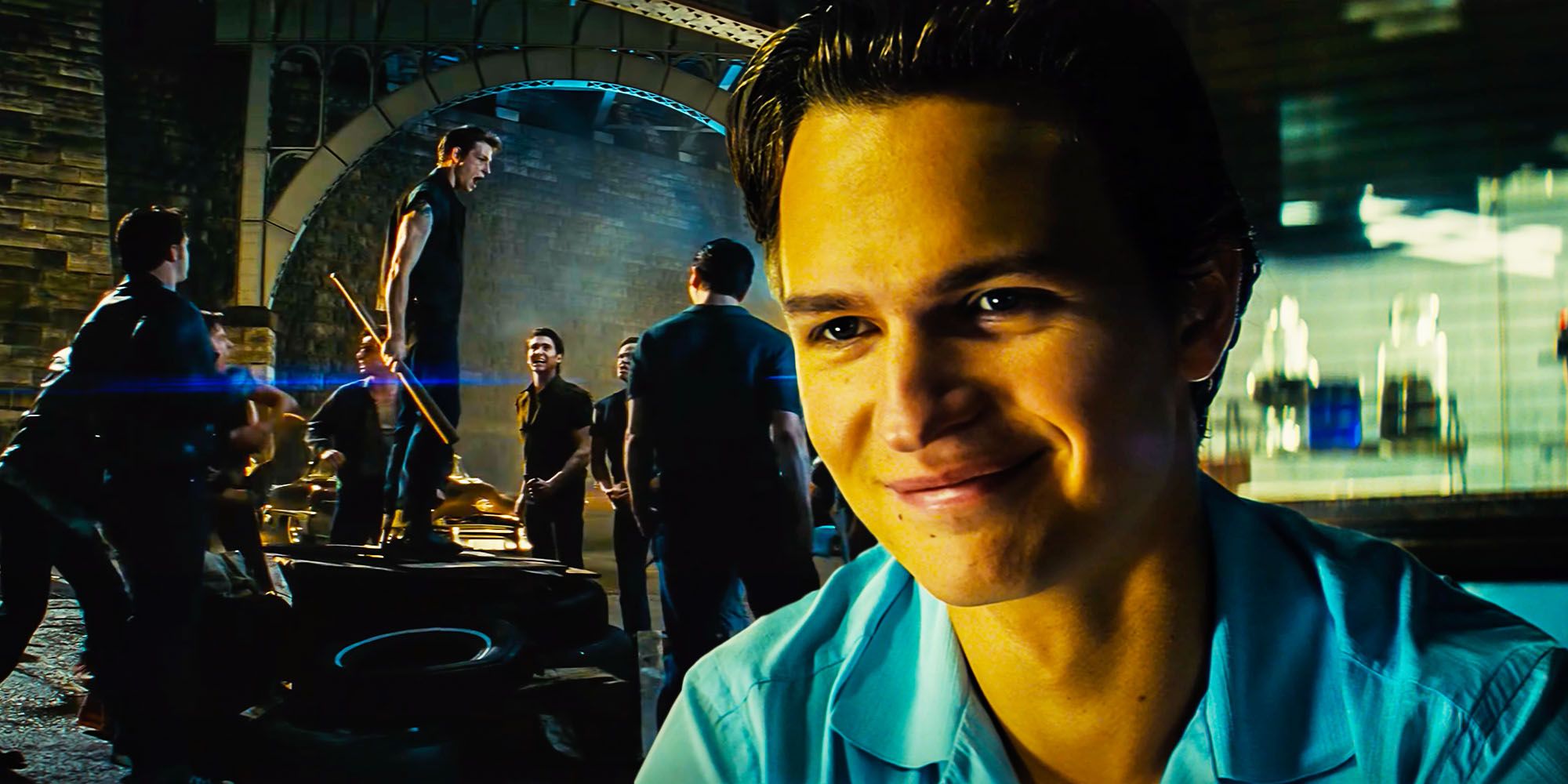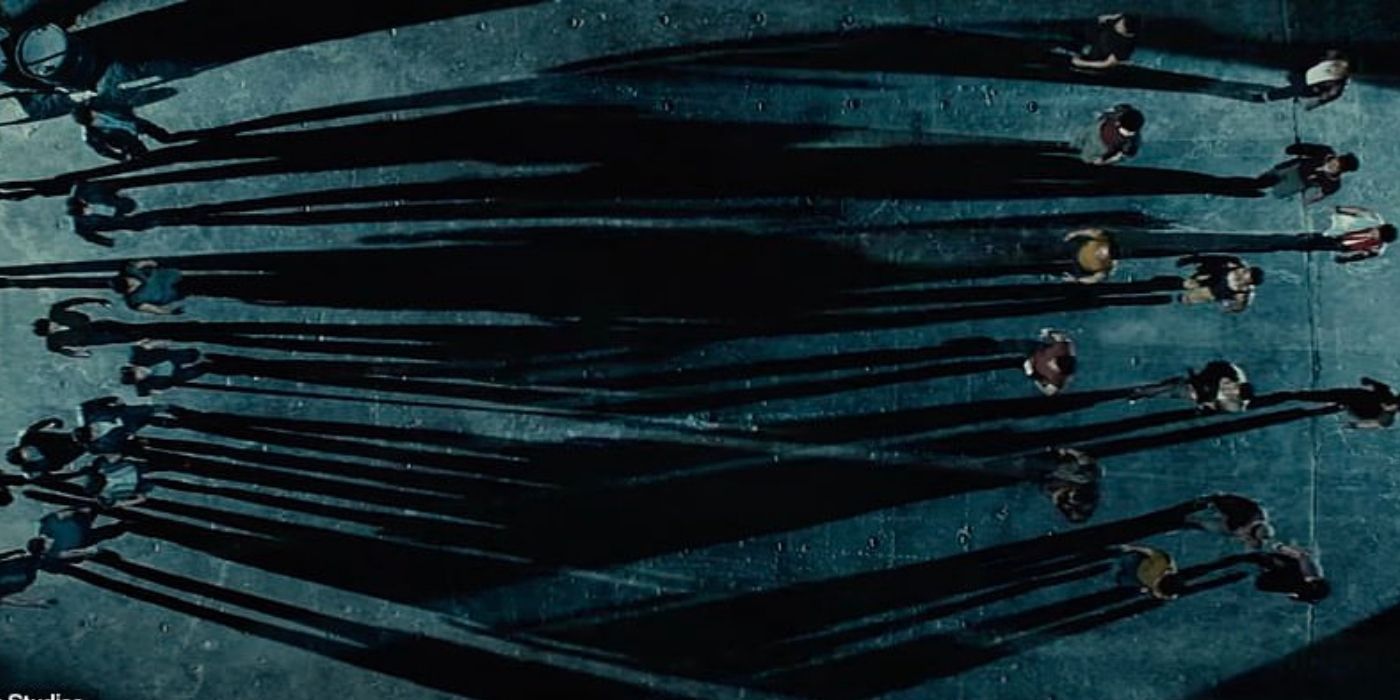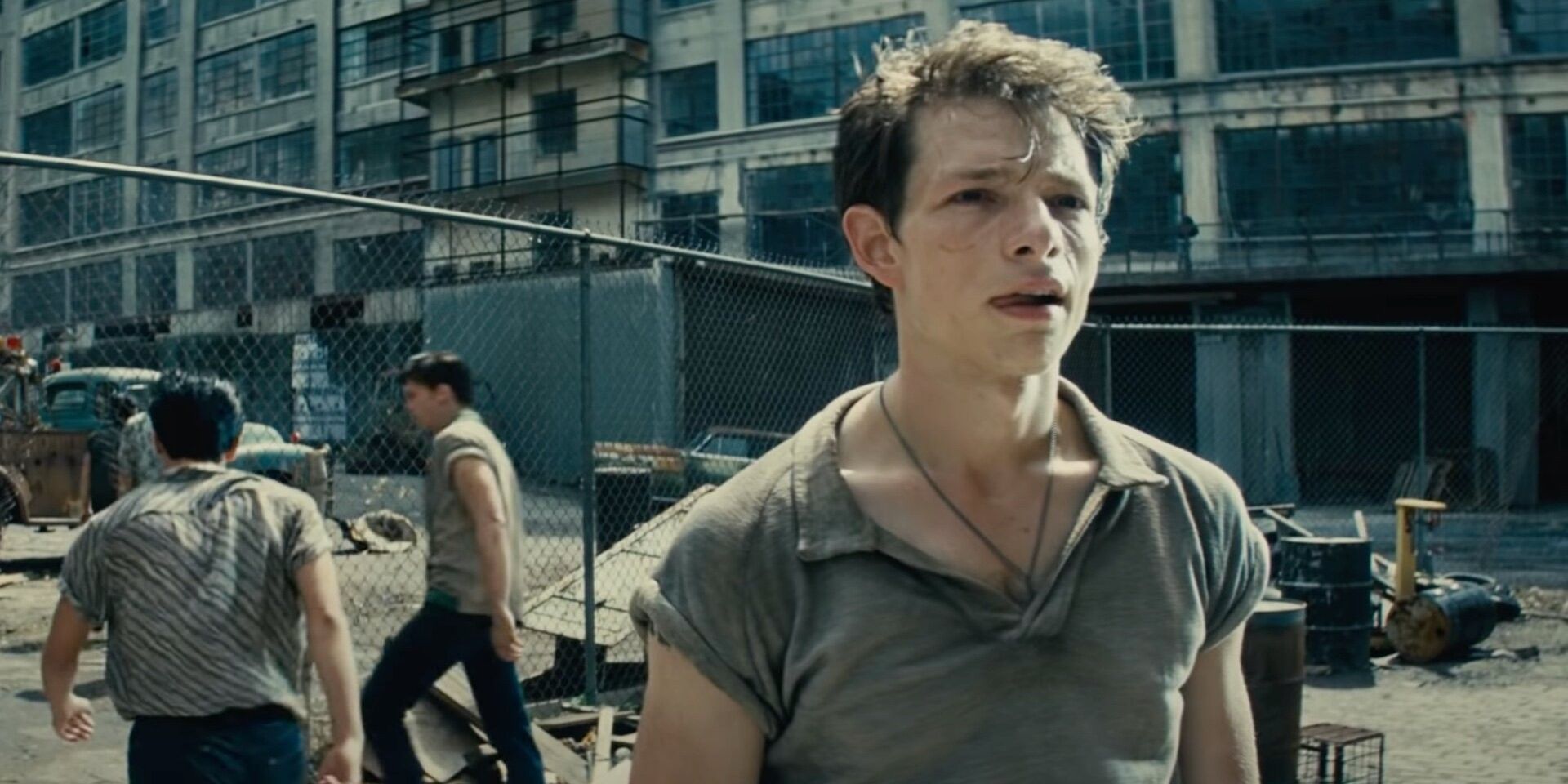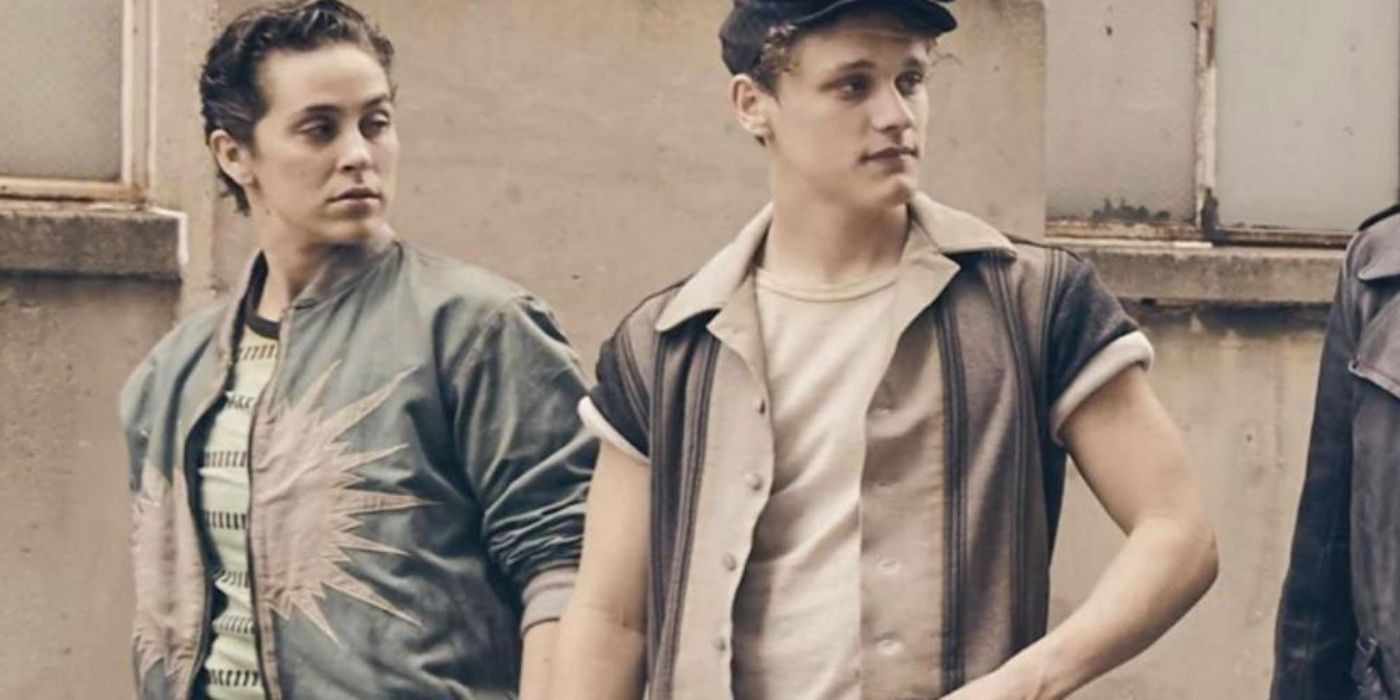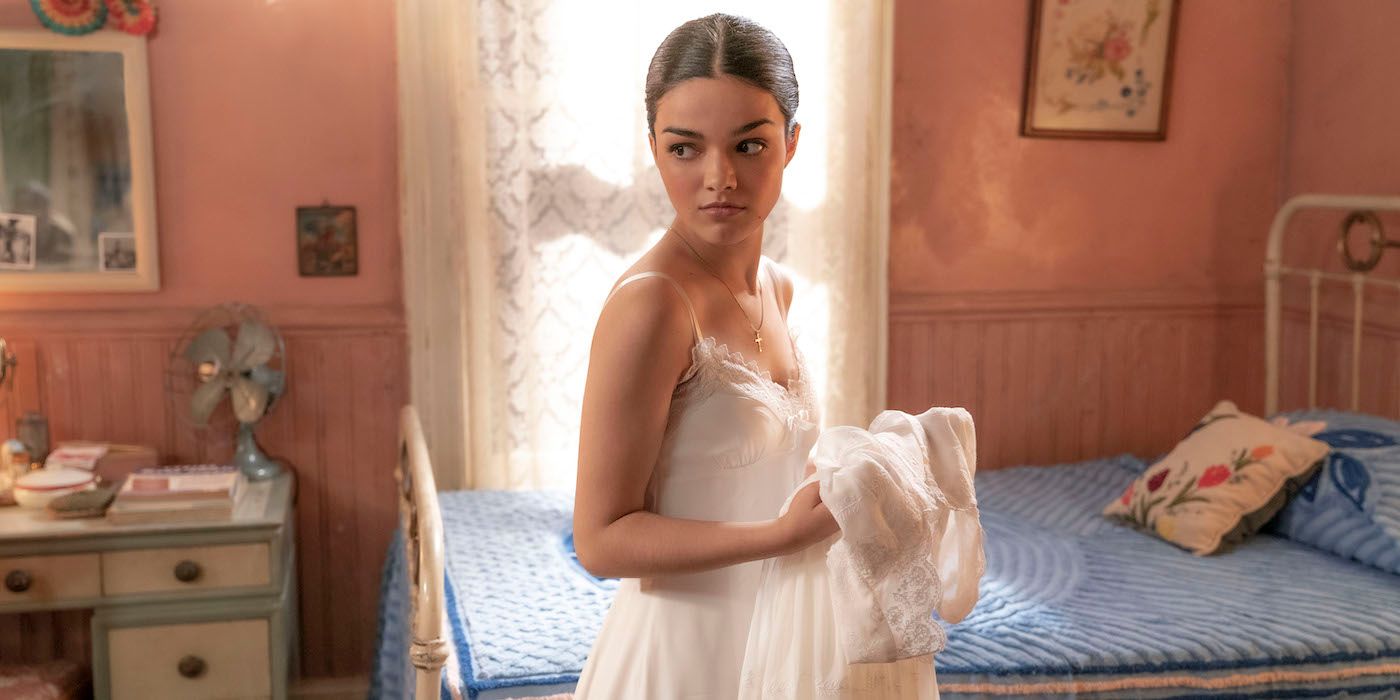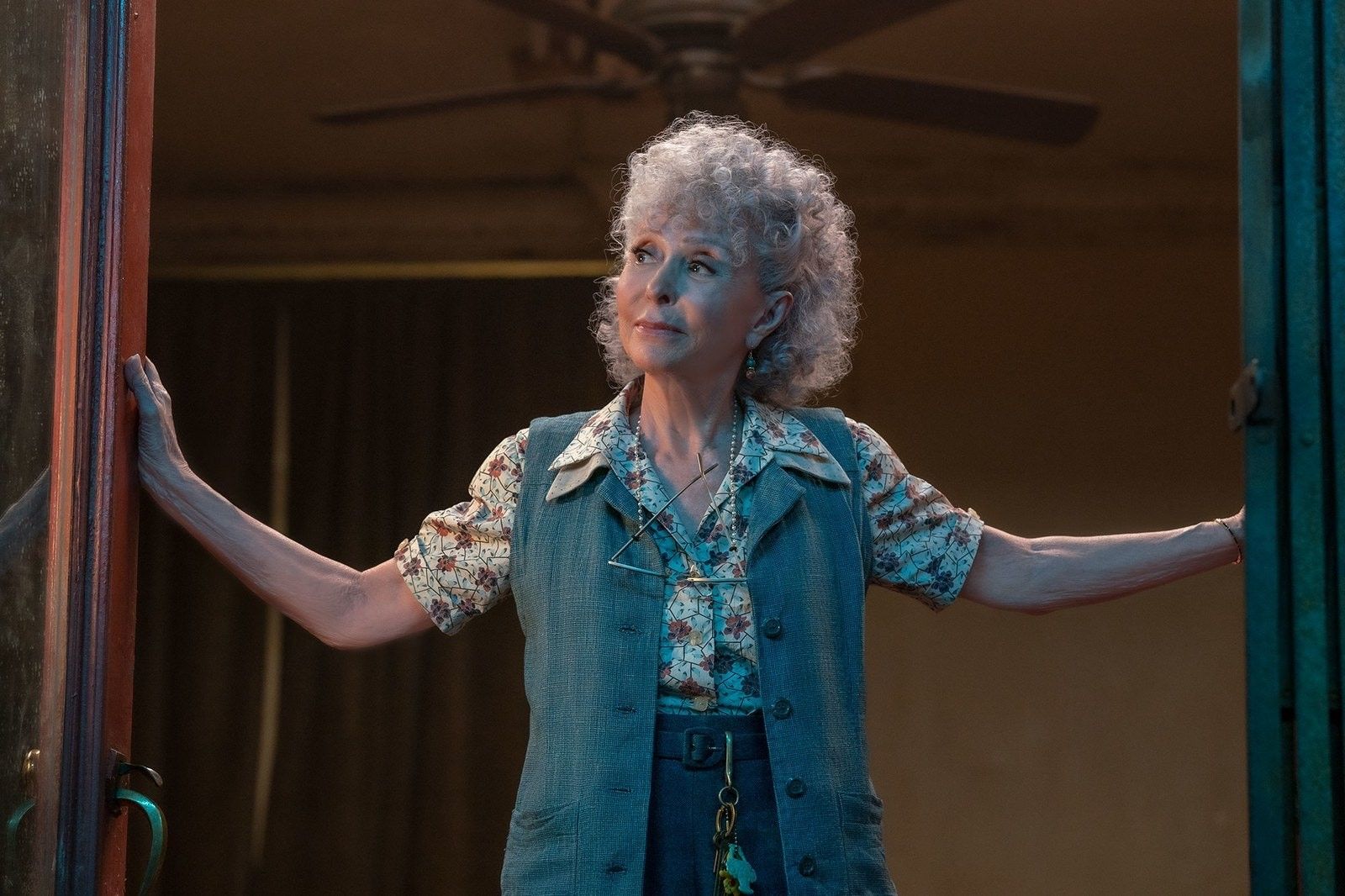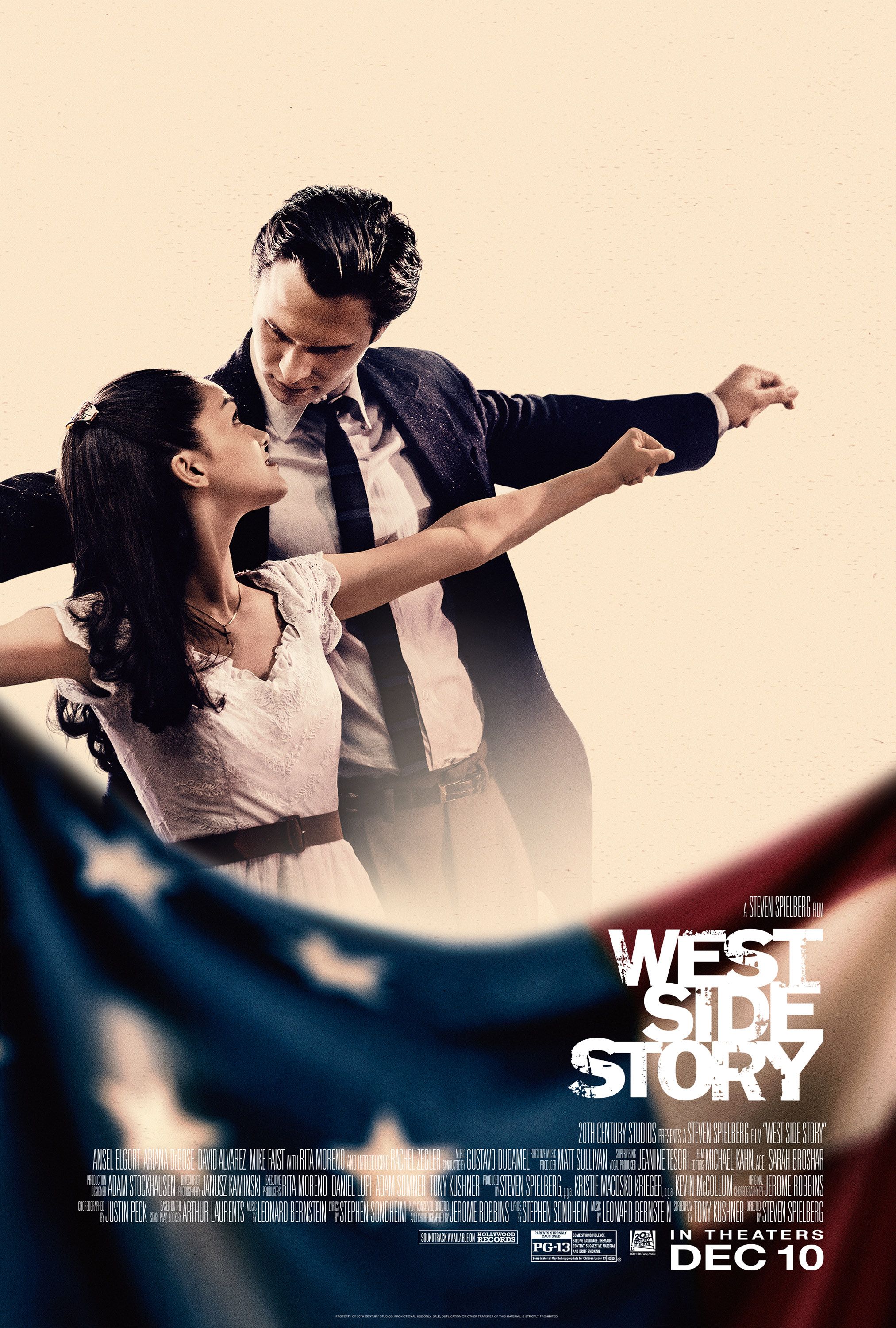Warning! SPOILERS for West Side Story
West Side Story has always had a tragic end but the release of Spielberg’s remake will bring the story to new audiences - here’s an explanation of the ending's real meaning. There’s a lot of tension and fighting happening in the movie, seemingly for no reason at times. Audiences might leave the theater wondering how such a colorful film about the charming love story between Tony (Ansel Elgort) and Maria (Rachel Zegler) could come to such a dark and devastating end, involving the deaths of three major characters. However, this stark contrast is central to the story’s message.
The Romeo and Juliet-inspired tale has always been about more than the love story at its center, using the Shakespeare tale to highlight racial tensions in 1950s New York. The 1961 adaptation of West Side Story showed this as well, but director Steven Spielberg’s version of the Broadway musical brings an updated perspective that takes the message of the stage show a little more seriously. The film balances the beauty of the love story well with the more sinister story lying behind the extravagant musical numbers.
Though audiences will no doubt enjoy the film, its depressing end may feel like a whiplash turn for many viewers. While it is easy enough to understand what happened, the final act of the movie moves along quickly and it can be easy to lose track of why Riff, Bernardo, and Tony all end up dead. With that in mind, here are some answers to the most important questions and what they mean to West Side Story.
What The Sharks & Jets Were Really Fighting Over
Although this question is answered in the beginning of the movie (before West Side Story's characters Tony and Maria are even introduced), the rival gangs spend so much time fighting over little things that the actual conflict is forgotten. The Sharks and the Jets seek out any reason to fight each other, egged on by Jets leader Riff (Mike Faist) who is itching for a showdown between the groups. He uses Bernardo’s (David Alvarez) protectiveness of little sister Maria from Tony as an excuse to set up a “rumble.” However, what lies at the heart of the trouble between the two groups is a turf war instigated by racism.
The Jets are white and were born and raised in the United States while the Sharks are first generation immigrants from Puerto Rico, making this another major movie musical of the year to feature Hispanic characters following summer's In The Heights. As established in the first few scenes of the movie, the Jets feel threatened by the Puerto Rican community that has moved into the neighborhood they grew up in. Riff and the gang were attempting to maintain a sense of control over the neighborhood, despite Lieutenant Schrank's (Corey Stoll) claim its inhabitants are destined for eviction so that it can be reconstructed. The mistrust between the two groups isn't based in any real conflict, except that the Jets don't want to share what they see as their territory with immigrants.
Why Riff Refused To Stop The Fight
Though the rift between the Jets and Sharks is due to misconceptions that each group has about the other, Riff plays a key role in continuing to egg on the fighting between the groups in West Side Story. Even when Elgort’s Tony, who was hidden in the original trailer for the film, repeatedly asks Riff to call off the rumble, Riff refuses in equal measure. He goes so far as to bring a gun to the rumble when the Sharks have given no indication that they will. Why is Riff so set on the fight?
Although Russ Tamblyn gave an enjoyable performance as Riff in the original West Side Story movie, Faist's portrayal of the character is more nuanced in comparison. In the 2021 film, Riff seems purposeless outside of his attachment to the Jets. His whole identity is wrapped up in being a Jet and seems willing to go to his grave in the name of the gang. He doesn't believe that he can be anything outside of his neighborhood and membership in the Jets.
Riff seems to want the fight almost as a death wish, at one point saying to Tony that he was "born to die young." While Riff puts up the façade of seeking the rumble as leader of the Jets in Spielberg's well-reviewed remake of West Side Story, his refusal to put a stop to it came from his own sense of hopelessness, even if it brought harm to others as well as himself. Unfortunately, this destructive tendency does lead to harm for himself and others, ultimately leading to both Bernardo and Tony's deaths along with his own.
Why The Sharks Finally Accepted Anybodys Into The Gang
Throughout Spielberg's West Side Story, a character named Anybodys (Ezra Menas) is seen trying desperately to prove himself to the Jets and become an accepted part of the gang. In the original stage production and in the 1961 film adaptation, Anybodys is a tomboy seeking to join the gang in spite of her gender whereas the updated version presents the character as transgender with the Jets refusing to accept his chosen gender identity. The change to the character reflects the increased representation of the LGBTQ community in Hollywood that has also been seen in other genres, such as the LGBTQ+ character in the western, The Harder They Fall. In both versions, various members of the Jets continue to turn Anybodys away, although the character's stealth proves valuable to their purposes.
Towards the end of the West Side Story, the Jets are trying to protect Tony from the police while he waits for Maria to join him in Valentina's drugstore. Anybodys soon arrives with the information that Chino (Josh Andrés Rivera) has obtained a gun and may be looking for Tony. Before going back out to keep an eye on things, the Jets indicate that they accept Anybodys for who he is and that he is now part of the group.
What brought the change of heart for the Jets? It likely has to do with the loss of Riff and the Jets being fearful of what might come next for their gang. Not knowing how the Sharks might retaliate, or if any of them might get arrested, it begins to look silly to keep allies out of the gang based on gender identity. Anybodys had proven himself time and time again over the course of West Side Story. In spite of other failings of the Jets to accept others based on external factors, they learned enough to accept Anybodys for his loyalty to the gang rather than for his gender.
What Maria Meant When She Said Now She Had Hate
The Jets try their best to protect Tony from both the Sharks and the police but their attempts are futile once Valentina (Rita Moreno, who could make Oscars history if she is nominated for her role in this film) has passed along Anita's (Ariana DeBose) lie that Chino has shot Maria. In a state of distress, Tony is fatally shot by Chino just as he realizes that Maria is still alive, the most tragic moment of West Side Story. After Tony dies in her arms, Maria furiously takes the gun from Chino and points it alternatively at both Jets and Sharks alike, saying that she could kill any of them because she now "had hate." What did Maria mean by this statement?
Maria begins the movie as a very innocent young adult, being very new to America, the same as in the original West Side Story, which can be streamed online. She has never really been in love before, although her brother tries to pair her up with Chino. Chino seems nice but Maria quickly becomes swept up in a whirlwind romance with Tony, in spite of Bernardo's warnings not to get involved with a non-Puerto Rican. When the romance is abruptly ended by Tony's death, Maria is inconsolable. She had just learned how it felt to be in love and then it was just as quickly taken away from her.
Though Maria's time with Tony in West Side Story is limited, her feelings were stronger than anything she had known before. When Tony died, it is not so much that her love for Tony went away as it is that the love was replaced by hatred for those who took him from her. Since her love for Tony was so strong (inspiring songs comparable to those from In The Heights), the hatred that took its place was just as strong, which would have allowed her to kill. It's notable that Maria points the gun at both Sharks and Jets alike, showing that she doesn't blame the death on any one person but on the ridiculous prejudice that both groups harbored.
Why Valentina Made Chino Turn Himself In
Although Tony's death was really caused by something bigger than a single person, it was Chino who pulled the trigger. After the Sharks and Jets join together to carry away Tony's body, Valentina comes alongside Chino as police cars pull up and she makes him turn himself in. After all the violence that occurred, one might wonder why Chino to be the only character in the West Side Story musical remake to be arrested. Given Chino's presentation in the film as an upstanding young man who had previously not gotten mixed up in the gang squabbles, it seems all the more unfair.
Unfortunately for Chino, many of the other Jets and Sharks had not committed crimes. At least, the police had no evidence to present against the others. Several of those who actually killed someone were already dead: Bernardo killed Riff, Tony killed Bernardo, and Chino killed Tony. Chino was the only person who remained alive to be punished for a crime. Although it may seem strange that Valentina forced Chino to turn himself in after she helped to hide Tony from the police, she did it because she recognized that the police would keep searching until they were able to arrest someone for the deaths.
The Real Meaning Of West Side Story's Ending
West Side Story (one of many movies based on Shakespeare plays) is incredibly sad but everything that happens, including Tony's death, serves to prove the real meaning of the movie's end. The story shows that racial prejudice is senseless and leads to unwarranted violence that hurts everyone. Each gang's inability to look beyond their loyalty to their own kind wasn't able to solve any of their problems but caused even bigger issues for all of them.
Tony and Maria's romance shows that real love doesn't pay any attention to little details such as skin color or where someone came from. Tony and Maria wanted to start a life together but got caught up in the prejudices of their friends and family. Other 2021 releases such as Marvel's The Falcon and the Winter Soldier also tackled racism, but this movie approaches it on a more emotional level. West Side Story leans into the full consequences of the hatred that comes out of racism, leaving audiences speechless in the wake of the stark contrast of the beautiful music and dancing alongside the seriousness of the movie's ending.

